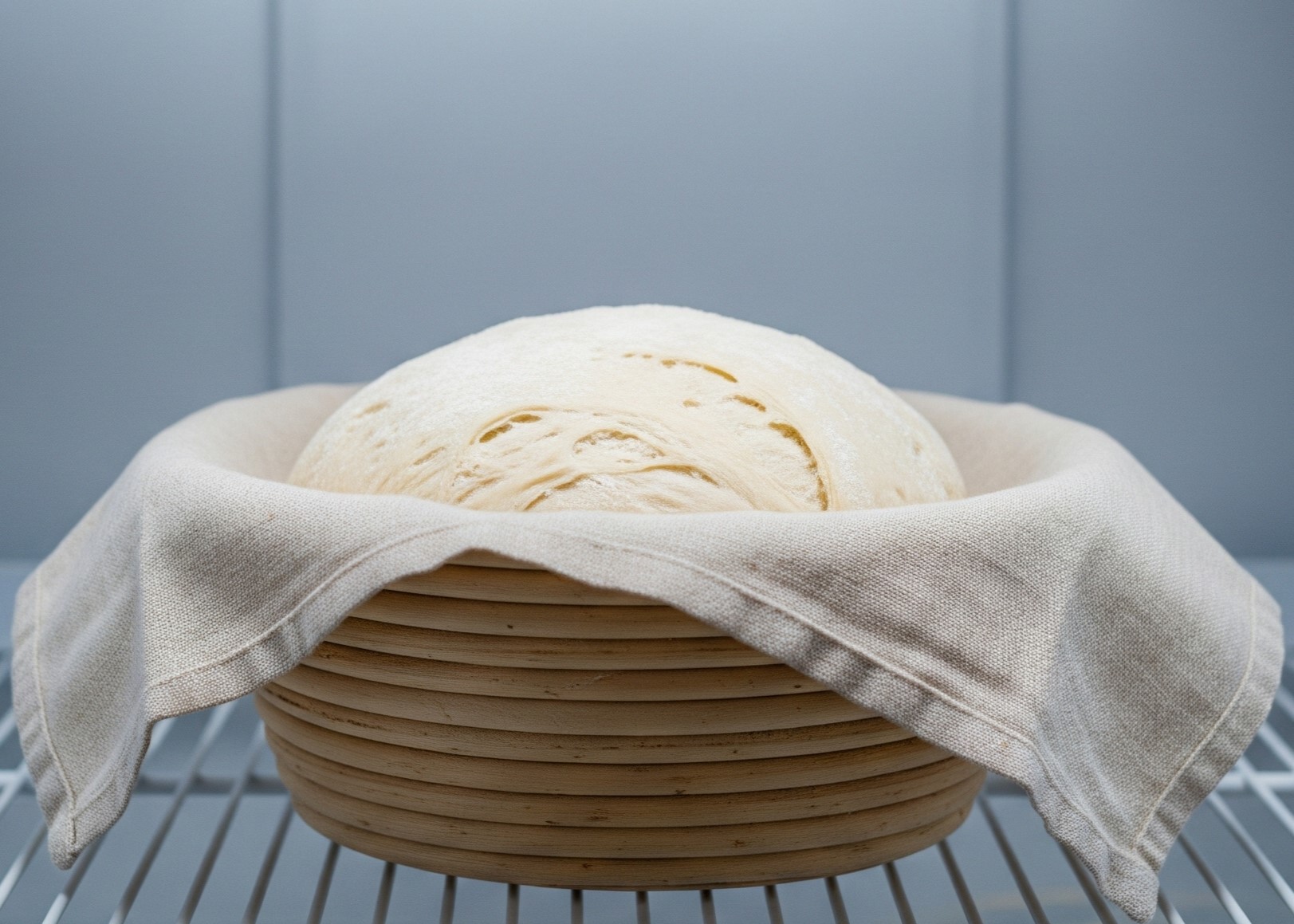The Art of the Cold Proof
Better flavor and convenience, powered by your refrigerator.
Cold proofing, also known as cold retardation, is the practice of placing your shaped dough in the refrigerator for its final proof, typically for anywhere from 8 to 48 hours. This simple technique is a game-changer for many bakers, offering significant advantages in flavor, texture, and scheduling.

Benefit 1: Deeper, More Complex Flavor
Yeast and bacteria work at different rates at different temperatures. At cold refrigerator temperatures, yeast activity (which produces CO2 for leavening) slows down dramatically. However, the bacteria (Lactobacilli), which produce the acids responsible for sourdough's complex, tangy flavor, continue to work, albeit slowly. This long, slow, cold fermentation gives them time to develop a much deeper and more nuanced flavor profile than a dough proofed at room temperature.
Benefit 2: Easier Handling and Scoring
A thoroughly chilled dough is significantly firmer and less sticky than a room-temperature one. This makes a world of difference when it's time to bake. The firm dough is much easier to flip out of its banneton, and it provides a perfect, stiff canvas for scoring. You can achieve sharper, cleaner cuts and more dramatic "ears" because the cold dough holds its shape and doesn't drag under the blade.
Ultimate Scheduling Flexibility
The long window for a cold proof (e.g., 12-24 hours) means you're no longer tied to your dough's schedule. You can mix and bulk ferment one day, then pop the dough in the fridge and bake it whenever it's convenient the next day—morning, afternoon, or evening. This breaks the process into manageable chunks.
How to Do It
- Complete your bulk fermentation and shape your loaf as usual.
- Place the shaped loaf in a well-floured banneton or a towel-lined bowl.
- Cover the container with a plastic bag or shower cap to prevent a skin from forming.
- Place it directly into the refrigerator.
- When you're ready to bake, preheat your oven and baking vessel. You can bake the dough straight from the fridge—no need to bring it to room temperature. This cold start actually helps improve oven spring.
Model Your Cold Proofs with Precision
CrumbScience Pro allows you to create multi-stage temperature schedules, so you can accurately model your room-temperature bulk ferment followed by a long cold proof to get the most accurate predictions.
Upgrade to Pro